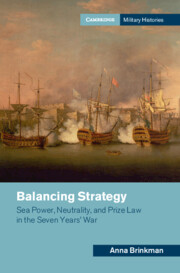The Hurst Awards Committee has selected Allison Power’s book Arbitrating Empire: United States Expansion and the Transformation of International Law as the recipient of the 2025 prize. The book is a tour de force, drawing extensively on archival research to provide a richly textured account of the United States role in transforming international law. The committee was impressed by the book’s nuance and rigorous historical detail, tracing how the United States has wielded authority not only to shape outcomes in international disputes through formal law and the use of international tribunals, but also at local economic levels such as Cuban sugar plantations, the locks and stops of the Panama Canal, the Texas cotton fields, and Arizona copper mines.
The book is an excellent achievement that never loses sight of the consequences of the U.S. government’s political and economic influence in international law, disputes, and economic violence. It is a work that thoughtfully narrates how “ordinary people” from throughout the world have attempted to use international law to advance the search for justice. The manuscript is compellingly written, and thoroughly researched. It resituates how American law and power have been framed during the past two centuries and the communities rendered invisible. It is an excellent contribution to law and society scholarship.
Congratulations to Professor Powers!
-- Karen Tani











